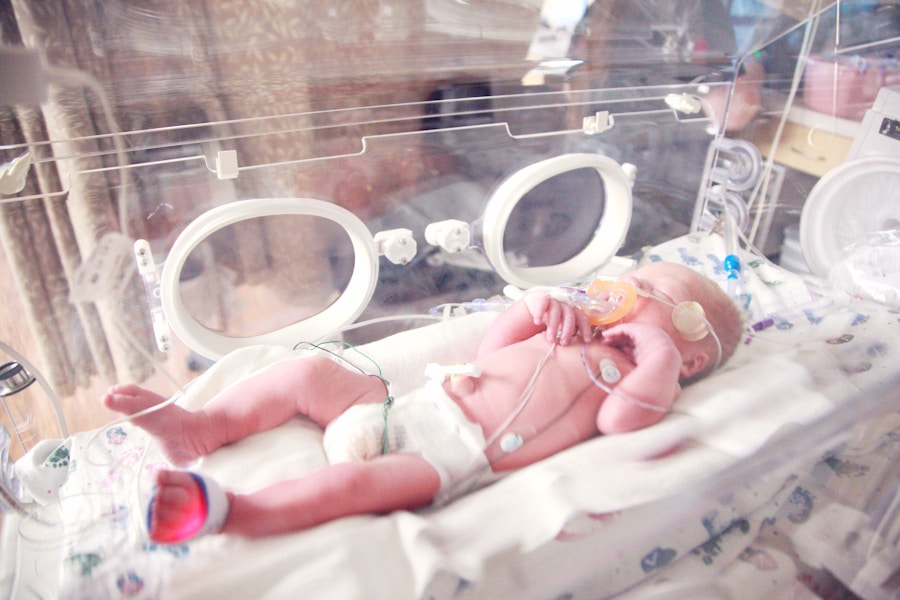Personality disorders are a group of mental health conditions that can have a significant impact on individuals and society as a whole. These disorders are characterized by long-standing patterns of thoughts, feelings, and behaviors that deviate from societal norms and cause distress or impairment in functioning. They affect how individuals perceive themselves, relate to others, and navigate the world around them. Personality disorders can lead to difficulties in maintaining healthy relationships, managing emotions, and functioning in various areas of life. Understanding these disorders is crucial for providing appropriate support and treatment to those affected.
Understanding Personality Disorders: What Are They?
Personality disorders are a category of mental health disorders characterized by enduring patterns of behavior, cognition, and inner experience that deviate from cultural expectations and cause significant distress or impairment. These patterns are deeply ingrained and typically begin in adolescence or early adulthood. The exact causes of personality disorders are not fully understood, but a combination of genetic, environmental, and psychological factors is believed to contribute to their development.
Common symptoms and behaviors associated with personality disorders include difficulty regulating emotions, unstable self-image, impulsivity, intense fear of abandonment, chronic feelings of emptiness, and difficulty maintaining stable relationships. Individuals with personality disorders often struggle with interpersonal relationships, have difficulty managing stress, and may engage in self-destructive behaviors.
The Types of Personality Disorders and Their Characteristics
Personality disorders are categorized into three clusters based on similar characteristics and symptoms. Cluster A includes paranoid, schizoid, and schizotypal personality disorders, which are characterized by odd or eccentric behavior. Cluster B includes antisocial, borderline, histrionic, and narcissistic personality disorders, which are characterized by dramatic, emotional, or erratic behavior. Cluster C includes avoidant, dependent, and obsessive-compulsive personality disorders, which are characterized by anxious or fearful behavior.
Each specific type of personality disorder within these clusters has its own defining traits. For example, individuals with borderline personality disorder often struggle with intense and unstable relationships, fear of abandonment, impulsivity, and self-harming behaviors. Those with narcissistic personality disorder may have an exaggerated sense of self-importance, a need for constant admiration, and a lack of empathy for others. Understanding the characteristics of each personality disorder is essential for accurate diagnosis and appropriate treatment.
The Prevalence of Personality Disorders in Society
Personality disorders are relatively common, with estimates suggesting that they affect around 10% of the general population. However, the prevalence rates vary depending on the specific type of personality disorder. For example, borderline personality disorder is estimated to affect about 1-2% of the population, while narcissistic personality disorder is believed to be less common.
The impact of personality disorders on society as a whole is significant. Individuals with personality disorders often struggle to maintain stable employment, have higher rates of substance abuse and addiction, and may engage in criminal behavior. They also tend to have higher rates of hospitalization and are more likely to seek mental health treatment compared to individuals without personality disorders. The economic burden of personality disorders is substantial due to increased healthcare costs and lost productivity.
How Personality Disorders Affect Relationships
Maintaining healthy relationships can be challenging for individuals with personality disorders. Their difficulties in regulating emotions, managing conflict, and maintaining stable self-image can lead to frequent relationship conflicts and instability. Individuals with personality disorders may have intense fear of abandonment and may engage in manipulative or controlling behaviors to avoid being left alone.
Common relationship patterns and dynamics associated with personality disorders include codependency, where one partner becomes overly reliant on the other for emotional support; enmeshment, where boundaries between individuals become blurred; and frequent cycles of idealization and devaluation, where the person with the disorder alternates between seeing their partner as perfect or worthless.
The Impact of Personality Disorders on Family Dynamics
Personality disorders can have a profound impact on family dynamics. Family members may experience high levels of stress, anxiety, and emotional turmoil as they try to navigate the unpredictable and often challenging behaviors of their loved one. They may feel responsible for managing the person’s emotions or may become enmeshed in their struggles.
Family members may also experience feelings of guilt, shame, and frustration as they try to understand and support their loved one with a personality disorder. They may struggle with setting boundaries, enabling unhealthy behaviors, or feeling overwhelmed by the constant emotional demands.
Coping strategies for family members include seeking support from therapists or support groups, setting clear boundaries, practicing self-care, and learning effective communication skills. It is important for family members to prioritize their own well-being and seek help when needed.
The Connection Between Personality Disorders and Substance Abuse
There is a strong link between personality disorders and substance abuse. Individuals with personality disorders often turn to drugs or alcohol as a way to cope with their intense emotions, impulsivity, and feelings of emptiness. Substance abuse can exacerbate the symptoms of personality disorders and make it even more challenging to manage relationships and daily functioning.
Treating co-occurring personality disorders and substance abuse can be complex. Integrated treatment approaches that address both conditions simultaneously are often necessary for successful recovery. This may involve individual therapy, group therapy, medication management, and support from addiction specialists.
The Link Between Personality Disorders and Criminal Behavior
Research has shown a correlation between personality disorders and criminal behavior. Individuals with certain types of personality disorders, such as antisocial personality disorder, are more likely to engage in criminal activities compared to the general population. The impulsive and reckless behaviors associated with some personality disorders can lead to legal problems and involvement in the criminal justice system.
Treating individuals with personality disorders in the criminal justice system presents unique challenges. Traditional punitive approaches may not be effective in addressing the underlying issues that contribute to criminal behavior. Instead, a comprehensive treatment approach that includes therapy, medication, and support services is necessary to address the root causes of the behavior and reduce the risk of reoffending.
The Challenges of Diagnosing Personality Disorders
Diagnosing personality disorders can be challenging due to several factors. First, individuals with personality disorders often have difficulty recognizing or acknowledging their own symptoms and may be resistant to seeking help. Second, the symptoms of personality disorders can overlap with other mental health conditions, making it difficult to differentiate between them. Third, there is a lack of consensus among mental health professionals regarding the diagnostic criteria for some personality disorders.
Accurate diagnosis is crucial for developing an appropriate treatment plan. It is important for individuals experiencing symptoms of a personality disorder to seek professional help from a qualified mental health professional who can conduct a thorough assessment and provide an accurate diagnosis.
Treatment Options for Personality Disorders
Treatment for personality disorders typically involves a combination of therapy, medication, and support services. Psychotherapy, particularly dialectical behavior therapy (DBT) and cognitive-behavioral therapy (CBT), has been shown to be effective in helping individuals with personality disorders manage their symptoms and improve their overall functioning.
Medication may also be prescribed to help manage specific symptoms associated with personality disorders, such as depression, anxiety, or impulsivity. Support services, such as case management or peer support groups, can provide additional resources and assistance in navigating daily life.
It is important for treatment plans to be individualized and tailored to the specific needs of each person. What works for one individual may not work for another, so it is essential for treatment providers to take a holistic approach and consider the unique circumstances and challenges faced by each person.
Coping Strategies for Living with Someone with a Personality Disorder
Living with someone who has a personality disorder can be challenging and emotionally draining. It is important for family members and loved ones to prioritize their own well-being and practice self-care. This may involve setting boundaries, seeking support from therapists or support groups, and engaging in activities that bring joy and fulfillment.
Effective communication is also crucial when dealing with someone with a personality disorder. Using “I” statements, active listening, and expressing empathy can help diffuse conflicts and improve understanding. It is important to remember that individuals with personality disorders may have difficulty regulating their emotions and may not always respond in a rational or logical manner.
The Importance of Seeking Professional Help for Personality Disorders
Seeking professional help is essential for individuals with personality disorders. Mental health professionals can provide an accurate diagnosis, develop a comprehensive treatment plan, and offer ongoing support and guidance throughout the recovery process. Therapy can help individuals with personality disorders learn coping skills, manage their emotions, improve relationships, and develop a more positive self-image.
Medication may also be prescribed to help manage specific symptoms associated with personality disorders. It is important for individuals to work closely with their healthcare provider to find the right medication and dosage that works best for them.
Personality disorders have a significant impact on individuals and society as a whole. Understanding these disorders is crucial for providing appropriate support and treatment to those affected. Personality disorders can affect relationships, family dynamics, and contribute to substance abuse and criminal behavior. Accurate diagnosis and individualized treatment plans are essential for helping individuals with personality disorders manage their symptoms and improve their overall functioning. Seeking professional help and support is important for both individuals with personality disorders and their loved ones.


